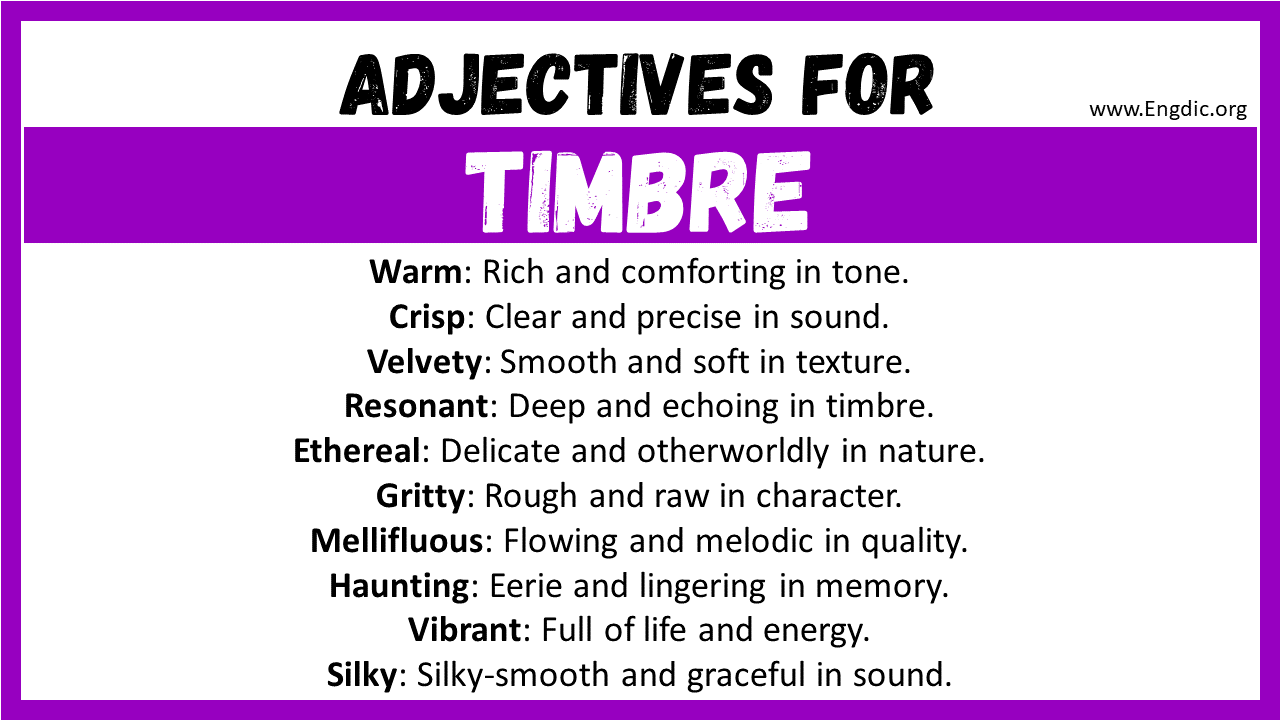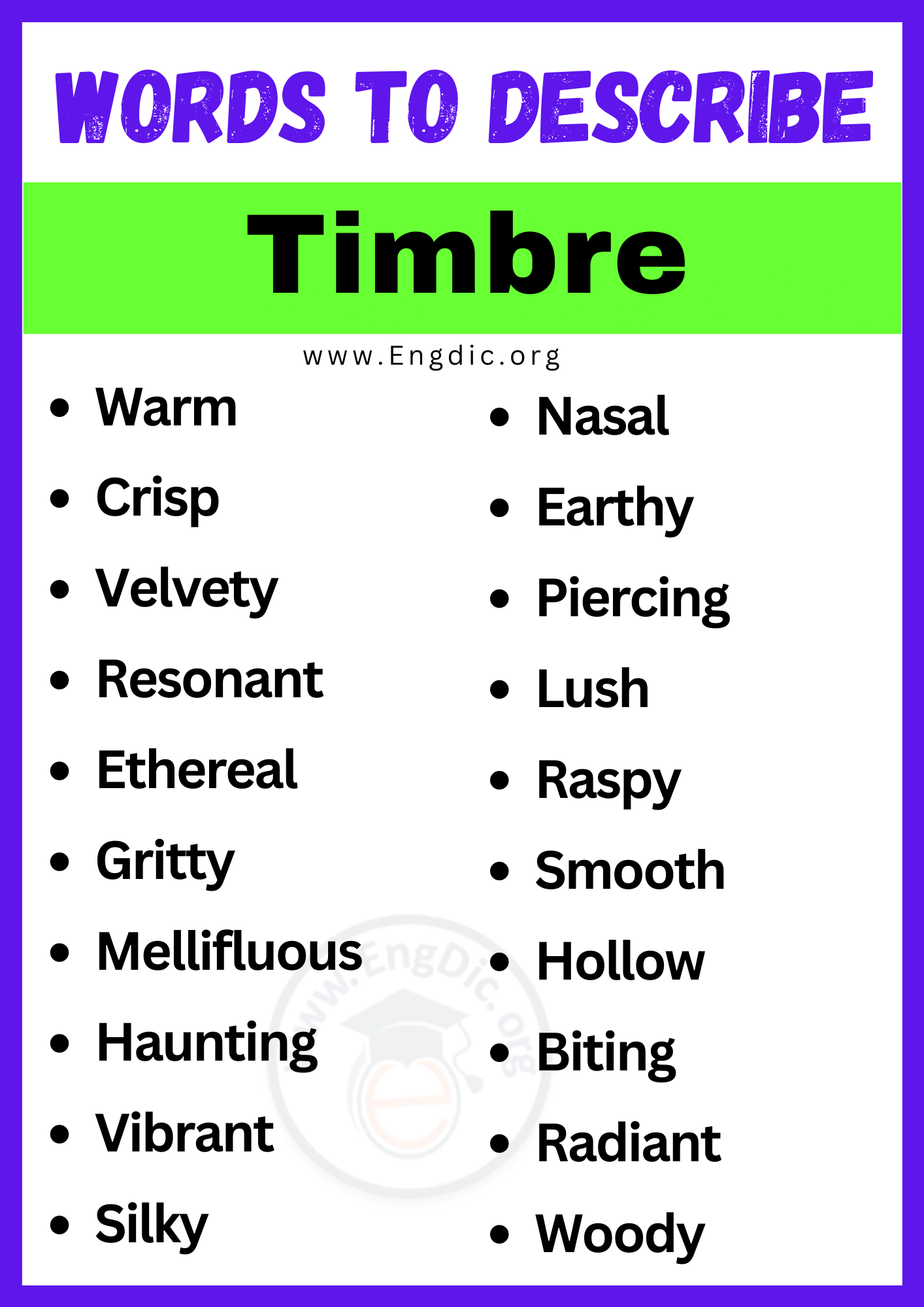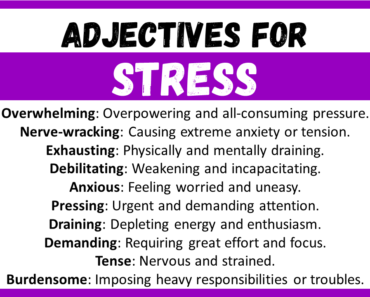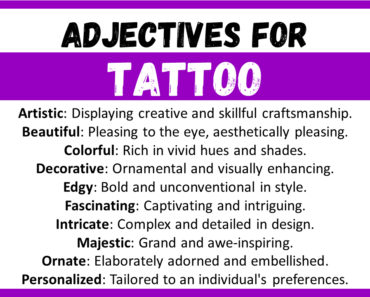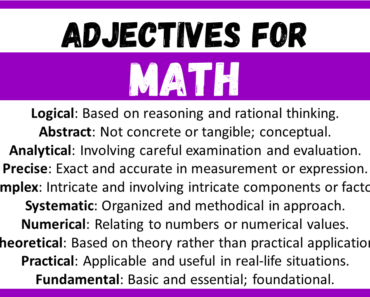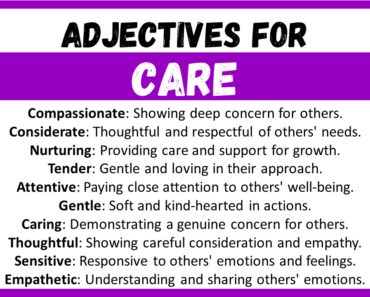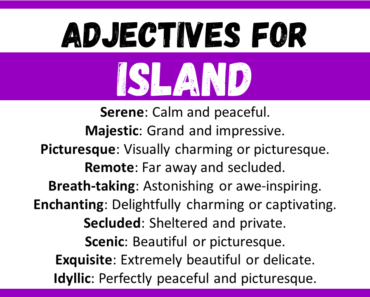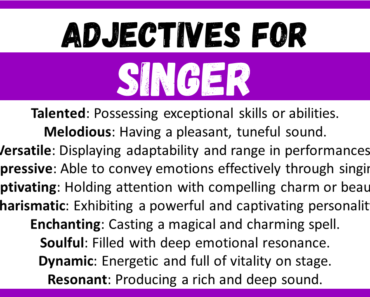Timbre, often described as the “tone color” of sound, is an essential aspect of our auditory experience. It refers to the unique quality that distinguishes one sound from another, even when they share the same pitch and volume. Words play a vital role in capturing and conveying the intricacies of timbre. From bright and mellow to sharp and rich, these descriptive terms provide us with a vocabulary to articulate the character, texture, and emotion that each sound possesses. Join us as we explore the fascinating world of words that describe timbre and delve into the nuanced realm of sound perception.
Adjectives for Timbre
Here are the 20 Most Popular adjectives for timbre:
- Warm
- Crisp
- Velvety
- Resonant
- Ethereal
- Gritty
- Mellifluous
- Haunting
- Vibrant
- Silky
- Nasal
- Earthy
- Piercing
- Lush
- Raspy
- Smooth
- Hollow
- Biting
- Radiant
- Woody
Words to Describe a Timbre with Meanings
- Warm: Rich and comforting in tone.
- Crisp: Clear and precise in sound.
- Velvety: Smooth and soft in texture.
- Resonant: Deep and echoing in timbre.
- Ethereal: Delicate and otherworldly in nature.
- Gritty: Rough and raw in character.
- Mellifluous: Flowing and melodic in quality.
- Haunting: Eerie and lingering in memory.
- Vibrant: Full of life and energy.
- Silky: Silky-smooth and graceful in sound.
- Nasal: Characterized by a distinct nasal quality.
- Earthy: Earthy and grounded in nature.
- Piercing: Sharp and penetrating in tone.
- Lush: Luxuriant and full-bodied in sound.
- Raspy: Rough and husky in timbre.
- Smooth: Even and polished in quality.
- Hollow: Empty and resonant in character.
- Biting: Sharp and intense in sound.
- Radiant: Glowing and radiant in timbre.
- Woody: Resonating with a wooden-like quality.
Example Sentences for Timbre Adjectives
- The singer’s voice had a warm timbre.
- The guitar produced a crisp sound.
- Her vocals were as velvety as silk.
- The cello had a resonant tone.
- The choir’s performance created an ethereal atmosphere.
- The rock singer’s voice had a gritty edge.
- The violin’s melody was mellifluous and enchanting.
- The haunting notes of the piano echoed through the room.
- The trumpet’s sound was vibrant and energetic.
- Her singing was as silky as a summer breeze.
- The saxophone had a distinct nasal quality.
- The bass had an earthy resonance.
- Her voice cut through the air with a piercing sound.
- The orchestra’s performance was filled with lush harmonies.
- His voice sounded raspy and rough.
- The piano keys glided smoothly, producing a smooth melody.
- The old wooden flute had a hollow sound.
- The electric guitar’s tone was biting and aggressive.
- The singer’s voice had a radiant quality that captivated the audience.
- The acoustic guitar had a warm and woody tone.
Explore More Words:
Describing Words That Start With T
FAQ’s
How to describe timbre in writing?
Timbre in writing can be described using adjectives that convey the unique quality and characteristics of the sound, such as warm, crisp, or ethereal.
How do you describe timbre in singing?
Timbre in singing can be described by focusing on the tone color, texture, and emotional quality of the voice, using adjectives like smooth, raspy, or haunting to convey its distinct character.
